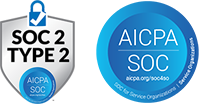What Is Employee Relations?
Employee Relations is the discipline focused on maintaining productive, respectful, and legally compliant interactions between an organization and its workforce. It encompasses policies, practices, and communication channels that address employee concerns—such as grievances, performance issues, and workplace conflict—and ensures consistent application of rules, benefits, and disciplinary procedures.
By embedding clear guidelines and feedback loops, Employee Relations creates an environment where staff understand expectations, feel heard, and trust that issues will be handled fairly and transparently.
Why Employee Relations Matters
Strong Employee Relations underpins organizational health in five key ways:
- Engagement & Morale: Open channels for voicing concerns and resolving disputes boost trust and commitment.
- Productivity: Swift, fair handling of issues—ranging from harassment claims to performance gaps—keeps teams focused on goals.
- Retention: Employees who experience consistent, respectful treatment are less likely to leave, reducing turnover costs.
- Legal Compliance: Proactive management of complaints and disciplinary actions mitigates risk under labor laws and regulations.
- Culture & Reputation: Transparent processes reinforce a culture of fairness, attracting talent and building employer brand equity.
Where Employee Relations Is Used
- Onboarding & Policy Communication: Introducing new hires to codes of conduct, handbooks, and reporting mechanisms.
- Day-to-Day Management: Equipping managers to address performance feedback, attendance issues, and team dynamics.
- Conflict Resolution: Mediating interpersonal disputes and facilitating restorative conversations.
- Disciplinary Procedures: Implementing consistent investigation, documentation, and corrective actions when policies are breached.
- Change Management: Guiding staff through reorganizations, mergers, or policy shifts with clear messaging and support.
Employee Relations Key Benefits
- Consistent Fairness: Standardized procedures ensure all employees receive equal treatment.
- Reduced Escalations: Early intervention in concerns prevents issues from growing into formal grievances or litigation.
- Data-Driven Insights: Tracking case types, resolution times, and repeat issues highlights areas for systemic improvement.
- Manager Empowerment: Training leaders in coaching, documentation, and legal basics builds frontline capability.
- Enhanced Trust: A reputation for handling issues thoughtfully fosters loyalty and a sense of belonging.
Best Practices & Examples
- Clear Grievance Policy: Publish unambiguous steps for raising concerns—confidential hotline, HR representative, and appeal routes.
- Timely Investigations: Set maximum response times (e.g., 48–72 hours) for initial case acknowledgment and regular status updates.
- Documentation Standards: Use uniform templates for interviews, findings, and outcomes to ensure audit readiness.
- Manager Training: Certify supervisors in conflict-management techniques and legal compliance—one retailer saw a 30% drop in repeat grievances after quarterly workshops.
- Continuous Feedback: Deploy anonymous pulse surveys to capture emerging sentiment and adjust policies before formal complaints arise.
Conclusion
Employee Relations transforms potential friction into constructive dialogue. By codifying fair processes, equipping managers, and leveraging analytics on case trends, organizations resolve issues efficiently, uphold compliance, and reinforce a culture of respect—driving engagement, productivity, and sustainable growth.
Employee Relations FAQs
Q: What is the meaning of employee relations?
Employee Relations is the practice of managing the workforce relationship—covering policies, communication, conflict resolution, and disciplinary processes—to ensure fair, consistent treatment and maintain a positive work environment.
Q: What is HR’s role in employee relations?
HR’s role includes designing and enforcing policies, training managers in legal and interpersonal skills, investigating grievances, mediating conflicts, and analyzing case data to improve organizational practices.
Q: How important is employee relations?
Critical. Effective Employee Relations boosts morale, reduces turnover, ensures legal compliance, and safeguards productivity by resolving issues before they escalate—directly impacting an organization’s performance and reputation.
Q: Is employee relations a good job?
Yes. Careers in Employee Relations combine legal knowledge, communication skills, and problem-solving. Practitioners play a strategic role in shaping culture, guiding leadership, and protecting both employee interests and organizational integrity.




